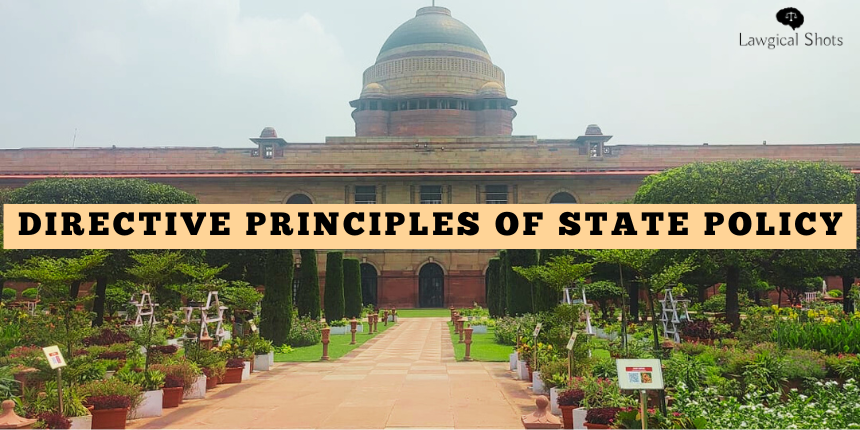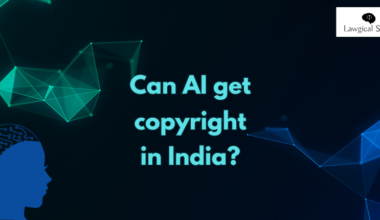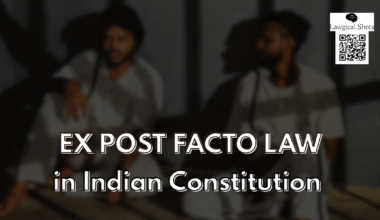Part IV of the Indian constitution is a positive obligation on the State, which aims at laying directions for it in making laws and policies. It is important to note that the provisions contained in part IV of the Constitution – Directive Principles of State Policy, are not enforceable by law. It means that if directive principles are not obeyed or implemented by the State, one cannot get them enforced or implemented through the Courts unlike part-III of the Indian constitution i.e. fundamental rights.
There are 20 articles under part IV of the Indian Constitution. Let’s talk about them briefly under this blog.
Directive Principles of State Policy – Articles Simplified
What is Article 36 of DPSP?
Article 36 of the Constitution of India defines State and has been given the same meaning as discussed under Article 12 of Part III – fundamental rights of the Indian Constitution.
DPSP not Enforceable by Law
As per Article 37, Directive Principles are fundamental in the governance of the country and therefore, it is the duty of the State to apply these principles while making laws and policies. However, as mentioned earlier, DPSP are not justiciable, and a person cannot sue the government for not following the provisions under Part IV of the Constitution.
What does Article 38 of Indian Constitution say?
In article 38(1), a part of the Preamble has been incorporated i.e. “justice, social, economic, and political”. This clause has been mentioned to remind the State about the society the constitution expects it to create. This provision suggests maintenance of social order in which justice, economic, social and political rights are infused in the institutions for the welfare of the people.
Article 38(2) was introduced through the 44th Constitutional Amendment which states that there should be equality amongst groups. Since a huge disparity or inequality in income and status exists amongst different groups of people, the same needs to be looked after and reduced by the State among individuals and different groups.
What is Article 39 of DPSP?
Article 39 deals with certain principles which need to be followed by the state. It includes adequate means of livelihood for citizens, fair distribution of wealth, equal pay for equal work, Protection of children and against forced labour.
Article 39 sub-clause (b) states that distribution of ownership and control of material resources of the community should be done in such a way as to subserve the common good. Here, the expression “material resources of the community” means the things which can produce wealth for the community. Article 39(c) lays that the operation of economic system does not result in the concentration of wealth and means of production to the common detriment. Both the provisions focus on building welfare of society and maintaining social order. It reflects that the makers of the Constitution neverdesired the compromise of individual’s dignity in envisaging the development in social, economic and political fields.
In the matter of State of Bihar v. Kameshwar Singh (1952) 1 SCR 889, it was held that the concentration of big blocks of land in the hands of a few would not fulfill the purpose of article 39(b) and (c). Therefore, the law aims at doing away with this concentration in the hands of a few through Directive Principles of State Policy.
Sub-clause (d) of Article 39 talks about equality of pay for men and women but the workers under different establishments and management cannot claim equal payments. Pay scales may differ on the basis of educational qualifications.
Free Legal Aid in Indian Constitution
Article 39-A was added through the 42nd Constitutional Amendment which ensures equal justice and that all citizens should have access to freelegal aid. It is impossible to have proper legal recourse without legal aid services and free legal aid will be given to those who really need it.
Article 40 of Indian Constitution
The Constitution of India Article 40 provides for the establishment of Village Panchayats and bestowing them with such authority or powers as it is necessary to function as local self-government.
In pursuance of the Directive Principles of State Policy under Article 40, Part-IX of the Constitution has been introiduced through the 73rd Amendment, termed as The Panchayats. Article 243-O regarding bar to interference by Courts in electoral matters of the Panchayats is a step towards implementation of directive principle.
Right to Work, Education and Public Assistance
Article 41 of DPSP is a socialistic principle which helps boost economic and social development for the welfare of people. It provides that the State must make provisions for securing the right to work, to education. It also requires public assistance in cases of unemployment, old age, sickness, disablement. Article 41 acts as the foundation stone for various social sector schemes such as the right to food security and social assistance program and old age pension scheme and more. The State must design such policies within its economic capacity and development, subject to its economic capacity.
For better understanding of the principle, let’s take an example. A person employed in any scheme such as Jawaharlal Nehru Rozgar Yojana cannot claim regularization of their employment when scheme comes to an end or the money for it is exhausted. This was held by the Supreme Court in Delhi Development Horticulture Employees’ Union v. Delhi Administration (1992) SCR (1) 565.
Just and Humane Conditions of Work
There should just and humane conditions of work and maternity relief, as stated in Article 42 of the Constitution. In one of the leading cases – MCD v. Female Workers (Muster Roll), 2000 (2) SCR 171, the Supreme Court held that the validity of executive and administrative action denying maternity benefit must be examined on the anvil of Article 42 which is non-justiciable. The Court eventually held that since other regular employees at MCD were entitled to maternity benefit, there was nothing to prevent the daily wagers from availing the benefit.
What is the Article 43 of the Constitution?
According to Article 43, the State must strive to secure work, a living wage and decent work conditions to live a decent standard of living and full enjoyment of social and cultural opportunities. The provision ensures minimum wage for workers to establish a balance between work and other leisurely and cultural opportunities. The last portion of this Article focuses upon promoting cottage industries on an individual and cooperative basis in rural areas.
Worker Participation in Industry Management
Article 43-A lays the duty upon State to take steps for participation of workers in the management of organizations and establishments.
Article 43-B on the other hand states that state shall promote autonomous functioning, control and management of co-operative societies.
Uniform Civil Code Article 44
The much discussed UCC is enshrined under Article 44 and requires the State to secure Uniform Civil Code across the territory for Indian citizens. The aim to establish UCC is to replace personal/religious laws with single set of laws for all of citizens of India. The Uniform Civil Code has several benefits like reducing religious conflict, providing clarity and certainty regarding laws which will make it easy for people to do business and promote national integration as in feeling of oneness. However, it’s a challenging task since India is a land of broader cultural diversity. In 2016, for the first time, the Law Commission of India issued a questionnaire consisting of 16 questions to the public on the desirability of such a Code, but concluded that UCC was neither necessary nor desirable at that point. Though the ruling government is in support of UCC.
Free and Compulsory Education
Article 45 of the Constitution, as part of Directive Principles of State Policy, states that the State must provide free and compulsory education for children until they complete the age of 14 years. The same was introduced vide 86th Amendment Act of 2002, when right to education was made a fundamental right under Article 21A.
What does Article 46 of the Constitution say?
Article 46 lays down the fundamental principle of educational and economic justice. Basically, it promotes educational and economic interests of Scheduled Tribes and Scheduled Castes and other weaker sections of the society. The provision aims at protecting them from social injustice and exploitation in any form.
Duty towards Public Health
Article 47 of the Constitution of India lays down that the State should endeavor to raise the level of nutrition and the living standard of its people and the improvement of public health, upholding the same as its primary duties. The State is also expected to take measures to protect the people from consumption of intoxicating drinks and drugs, except for medicinal purposes, as it is injurious to their health. Selling liquor is both prohibitory and regulatory measures.
Organization of Agriculture and Animal Husbandry
Indian Constitution Article 48 lays for the State to take measures to organize animal husbandry and agriculture on modern and scientific lines. It is further endowed with the task to preserve and improve the breeds and prohibit the slaughter of animals i.e. cows and calves. One of the leading case State of Gujarat v. Mirzapur Moti Kureshi Kassab Jamat (2005), the Supreme Court upheld Total ban on slaughter of cows and its progeny. The Apex Court explained that “wherever any enactment is made for advancement of Directive Principles and it runs counter to the Fundamental Rights an attempt should be made to harmonise the same if it promotes larger public interest.”
Protection of Environment, Forests and Wild Life
The State as per Article 48-A of Constitution is bestowed with the duty of protection of the environment and safeguarding forests and wildlife, since it is important for well-being of all organisms.
What is Article 49 of Constitution?
The State as per Article 49 is obliged to protect the monuments /places/objects of artistic or historic interest, declared of national importance. Such a protection may be against spoil/disfigure/destruction/removal/disposal/export of such monuments/places/objects, as the case may be.
Separation of Powers
Article 50 of Constitution of India talks about the separation of Judiciary from that of Executive. The functions of different branches of the government are differentiated. This Article basically shows the independence of Judiciary from other organizations of the government, and imposes a duty upon the State to maintain such separation of powers.
What is provided under Article 51 of the Constitution?
The Promotion of international peace and security by the State has been discussed under Article 51. The State is bestowed to maintain just and honorable relations between nations. There should be respect for international treaties by the State, particularly those which India is a part of and they shouldn’t be inconsistent with Indian law. The State should encourage disputes international in nature to be settled by arbitration.
The various Directive Principles of State Policy have been enunciated by Ms. Aanchal Jain, intern at Lawgical Shots. She is assisting the team in curating better legal blogs for the Law Fraternity.








